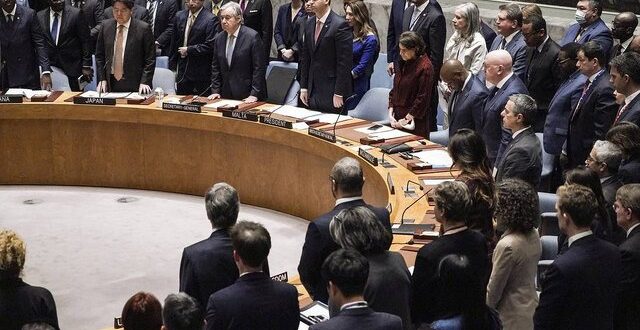AT
Kabul: The UN Security Council, under the current Presidency of Russia, unanimously passed the resolution on Thursday that “condemns the decision by the Taliban to ban Afghan women from working for the United Nations in Afghanistan, which undermines human rights and humanitarian principles.” The resolution also calls for the full, equal, meaningful and safe participation of women and girls in Afghanistan.
It also calls upon the Afghan authorities to “swiftly reverse the policies and practices that restrict women and girls of their rights to education, employment, and meaningful participation in public life.”
Permanent Representative of the United Arab Emirates to the UN Ambassador Lana Nusseibeh said “the restrictions imposed by the Taliban are unprecedented in the history of the United Nations, and they put the very presence of the UN in Afghanistan in jeopardy.”
Russia’s Permanent Representative to the UN Ambassador Vassily Nebenzia said that Moscow notes the efforts of UAE and Japan who searched for “compromise solutions” while taking into account a wide range of positions and wanted to draft a document that should account for the whole set of challenges that Afghanistan is faced with today.
“In this regard, it causes sincere regret and disappointment that steps towards a more prominent reflection of all these problems were actually blocked by a number of Western colleagues led by the United States,” he said.
The UN was notified by the Afghan de facto authorities that no Afghan woman was permitted to work for the UN in Afghanistan and that this measure will be actively enforced.
The UN had approximately 3,900 staff in Afghanistan; approximately 3,300 are nationals and 600 internationals.
Of those, there are about 400 women nationals and 200 women internationals. The UN instructed all national staff – men and women – not to report to the office until further notice.
The Afghan interim government however welcomed the resolution by the UN Security Council that acknowledged Afghanistan faces multifaceted challenges, but insisting the ban on women employment is an “internal social matter.”
“We stress that, in line with International Law & the strong commitment made to respect sovereign choices of Afghanistan, this is an internal social matter of Afghanistan that does not impact outside states,” said the Afghan foreign ministry spokesman Abdul Qahar Balkhi.
 Afghanistan Times
Afghanistan Times




